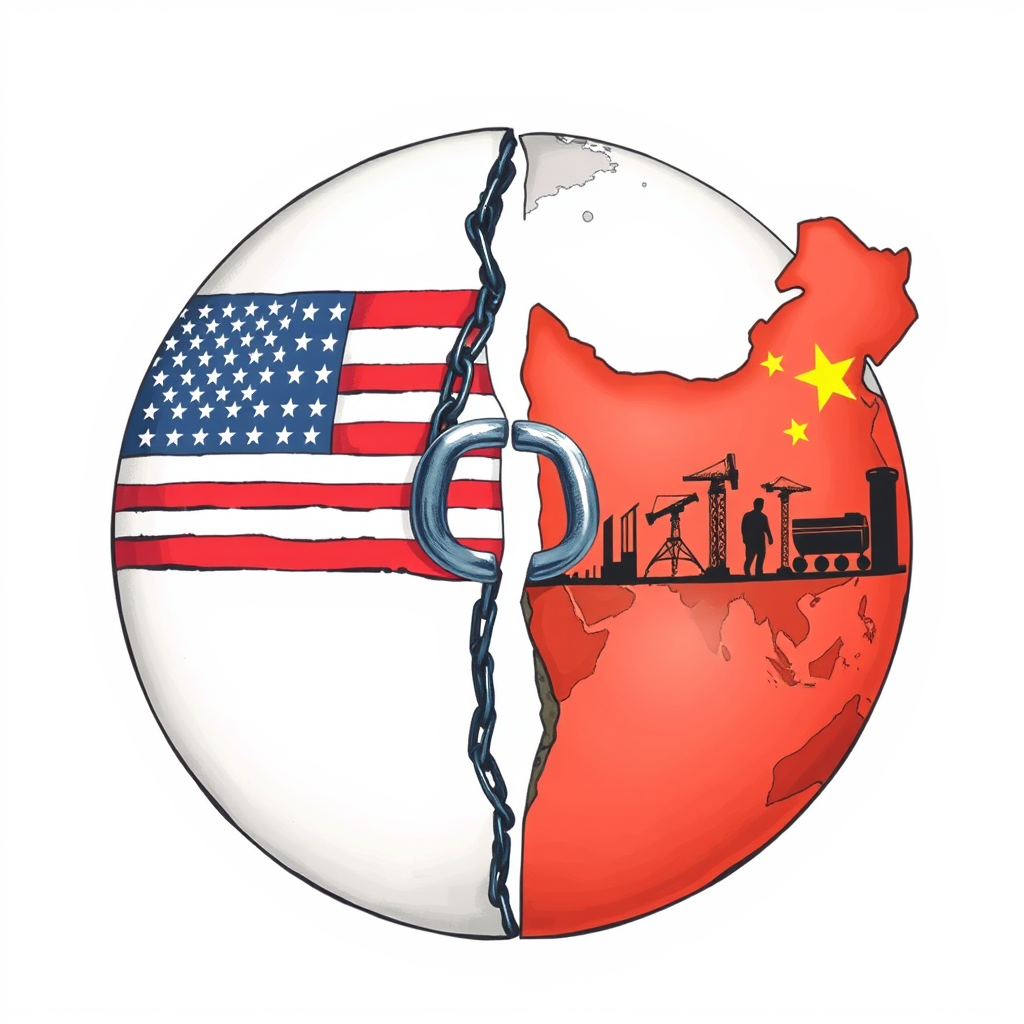China Vows to Fight U.S. Tariffs to End

Beijing reaffirmed its staunch opposition to escalating tariffs imposed by the United States, vowing to “fight to the end” in a comprehensive policy statement released Wednesday. The move comes as a newly implemented 104% tax on Chinese exports to the U.S. takes effect, and amidst a complete breakdown in trade negotiations.
The Chinese Ministry of Commerce argues that trade between the two nations is already balanced when considering trade in services and the operations of U.S. companies within China. They cite a $26.57 billion trade in services deficit for the U.S. in 2023, offsetting the traditionally measured goods trade deficit. However, this claim feels like a strategic attempt to reframe the narrative rather than a genuine reflection of economic reality. While services and internal operations do contribute to the overall economic picture, framing them as fully balancing decades of goods trade imbalances feels disingenuous.
China’s response to the latest round of tariffs, initiated by former President Trump’s “Liberation Day” measures, includes a 34% tariff on all U.S. goods and export controls on rare earth minerals – critical components in numerous high-tech industries. Trump subsequently retaliated with an additional 50% tariff on Chinese goods, effectively ending any immediate prospect of dialogue.
Beijing remains unwilling to bargain unless the U.S. adopts an “attitude of equality, respect, and mutual benefit,” according to Ministry of Foreign Affairs spokesperson Lin Jian. The white paper released Wednesday also accuses the U.S. of violating the spirit of the Phase 1 trade deal, specifically citing the ongoing efforts to ban TikTok unless its Chinese parent company, ByteDance, sells the app. China has reportedly blocked any potential sale until broader trade and tariff negotiations can resume.
The Chinese government argues that U.S. tariffs are counterproductive, warning they will destabilize financial markets, fuel inflation, weaken American industry, and ultimately trigger a recession. While this assessment contains a degree of truth – tariffs do carry economic risks – it conveniently omits the significant trade imbalances that prompted the initial U.S. actions.
The escalating tariff war presents a serious threat to the global economy. Both sides appear entrenched in their positions, prioritizing nationalistic rhetoric over pragmatic solutions. A return to constructive dialogue, based on a realistic assessment of the issues and a willingness to compromise, is urgently needed to avert further economic damage. The current trajectory suggests a prolonged period of uncertainty and escalating tensions, benefiting neither nation.